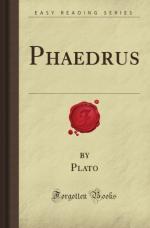|
This section contains 3,866 words (approx. 13 pages at 300 words per page) |

|
SOURCE: "La Fontaine and Phaedrus: A Relation Reargued," in French Studies: In Honor of Philip A. Wadsworth, edited by Donald W. Tappan and William A. Mould, Summa Publications, Inc., 1985, pp. 19-26.
In the essay that follows, Rubin compares the degrees of subtlety and ambiguity in the fables of Phaedrus and the seventeenth-century French writer de La Fontaine, who used Phaedrus as a source.
Off-hand, it would be difficult to think of a subject less immediately promising than this one.1 We already know—or think we know—how La Fontaine adapted his sources. He revealed it himself in the preface to the 1668 edition of the Fables, and generations of scholars have convincingly argued for a perfect fit between his announced intentions and his achievement. In what follows, the key word is égayer. The poet wrote,
On ne trouvera pas ici l'élégance ni l'extrême brèveté qui...
|
This section contains 3,866 words (approx. 13 pages at 300 words per page) |

|


